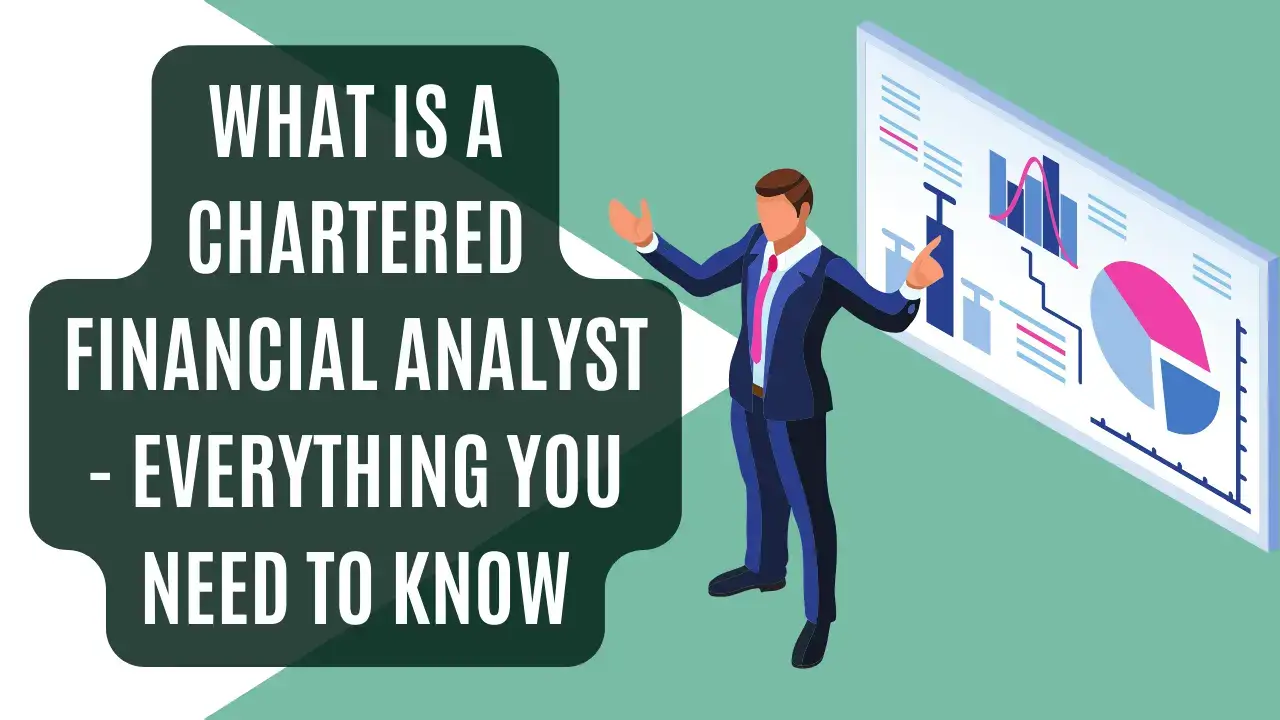What Is a Chartered Financial Analyst – Everything You Need to Know
A Chartered Financial Analyst (CFA) assists in evaluating the appropriate financial strategies for businesses. They provide recommendations, formulate plans, and interpret financial information. If you are interested in finance and aspiring to be an effective member in creating social change, then being a CFA is ideal for you. In this guide, we will explore the important information about CFA including their responsibilities and roles, so you can make an informed decision about a profession as a CFA.

What Is a CFA?
A Chartered Financial Analyst (CFA) is a professional who has been certified by the CFA Institute. To acquire this title or position, you have to pass several hard tests. While the process of acquiring the CFA charter is difficult, the credential is highly regarded in the finance and investment field. It proves to your employer that you have adequate understanding and prowess in handling financial responsibilities. For many young professionals, becoming a CFA is a good career objective since it offers many opportunities and can clear the path for a fruitful career.
What Does a CFA Charterholder Usually Do?
CFA charter holders provide vital services to the investment management industry. It means they are incredibly skilled in assessing different types of investments such as equities, bonds, options, futures, and even other investment opportunities. Their main aim is to achieve higher levels of return on investment for their clients or firms, with the least possibility of risks.
Below is a detailed list of their key responsibilities:
- Evaluate Investments: This involves evaluating various investment securities in order to determine the most suitable one to invest in. Moreover, they determine probable risks that may be associated with investing in the chosen investment security.
- Asset Allocation: They formulate the strategies to allocate an investment fund between various assets that will generate the highest return given the level of risk.
- Diverse Roles: Most of the shareholders work in the investment management field. However, they may also work in fields such as valuation, trading, research, treasury, and risk management.
- Analyze Financial Data: They scrutinize reports and markets to ascertain where funds should be channeled.
- Monitor Economic Trends: They monitor the movements in the economy and the performances of business entities closely. This assists them in understanding how these changes might affect the various investing opportunities.
- Make Informed Predictions: By virtue of their specialized training, they are able to predict future trends within the market and advise the investors on how to proceed accordingly.
What Are the Usual Workplaces for CFAs?
The CFA exams focus on several areas of this subject to ensure that charter holders are ready to work in various financial positions. Some CFAs are employed in large investment banks and they assist in fundraising as well as in stock and bond dealing. Some are employed in management accounting responsible for company budgets and financial developments for clients.
Here are common roles for CFA charter holders:
- Portfolio Manager: Evaluates investments such as stocks, and bonds, among others, intending to get the highest return that can suit the client or organization depending on the risk tolerance level of the two.
- Investment Banker: Advises and assists on big monetary transactions such as – when two businesses combine or when a business desires to begin offering stocks to the public. They ensure that all these transactions are conducted in a wise and legal manner.
- Risk Analyst: Examines certain data and information to determine possible risks with investments. They assist individuals in making choices about investment to minimize risk and maximize gains.
- Account Manager: Serves clients with anything financially related and ensures they are satisfied with the offered services. It maintains trust and makes clients believe that they will receive advice relevant to their situations.
- Accountant: Records the financial affairs of organizations, ensures that all operations are legal, and explains to organizations their current financial position and a potential one after spending money.
How Can I Become a Chartered Financial Analyst (CFA)?
It is important to note that attaining the CFA certification involves the mastery of certain skills. These skills are important when it comes to finance and investment management occupations. To become a chartered manager you are expected to clear three papers with subject areas including Ethics, Economics, and Financial Analysis. Such exams provide you with all the knowledge needed to perform well in the examination of financial information and the correct investment management.

